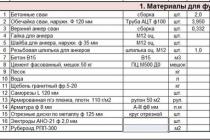In particular, according to the amendments to Law N 44-FZ, during the execution of the contract, the counterparty receives the right to change the method of securing the performance of the contract and (or) provide new security in a reduced amount ( the federal law dated December 27, 2018 N 502-FZ "On Amendments to the Federal Law" On the contract system in the field of procurement of goods, works, services to meet state and municipal needs ". Thus, a decrease in the amount of security is no longer a condition for changing way to enforce the contract.
The procedure for applying the provisions of this norm is also specified. In accordance with the new Law N 44-FZ, the amount of contract performance security is reduced in proportion to the cost of fulfilled obligations by sending the customer to the register of contracts information about the obligations fulfilled by the counterparty or about the fulfillment of the stage stipulated by the contract. The amount of security shall be reduced in proportion to the value of executed and commitments made.
find out last changes Law No. 44-FZ and Law No. 223-FZ, having completed training in, and receive a diploma of the established form.
Moreover, if as collateral, the size of which was reduced, the counterparty provided bank guarantee, the customer's claim for payment of monetary amounts under this guarantee can be presented in an amount not exceeding the size of the contract performance security, calculated taking into account information on the performance of the contract from the register of contracts. In the event that the enforcement of the contract is carried out by making Money, the customer, at the request of the counterparty, is returned to him in established by contract term cash in the amount by which the size of the security for the performance of the contract is reduced.
Reducing the size of the security for the performance of the contract is carried out provided that there are no unfulfilled counterparty claims for the payment of penalties, as well as acceptance by the customer of what was performed under the contract. Such a reduction is not allowed in cases determined by the Government of the Russian Federation in order to ensure the defense capability and security of the state, protect the health, rights and legitimate interests of citizens of the Russian Federation.
Good afternoon! If funds were deposited as security for the performance of the contract under a payment order, does the contractor have the right to replace this performance with a Bank Guarantee entered in the Register of Bank Guarantees? If yes, what art. 44-FZ allows replacing enforcement with a bank guarantee? And what are the rules of action? Is it necessary to conclude an additional agreement to the contract or is the written consent of the Customer sufficient? Thank you!
- Question: No. 831 dated: 2014-08-24.
According to part 7 of Art. 96 of Law 44-FZ, during the execution of the contract, the supplier (contractor, performer) has the right to provide the customer with a security for the performance of the contract, reduced by the amount of fulfilled obligations, stipulated by the contract, in lieu of the previously provided security for the performance of the contract. This may change the way the contract is enforced.
The legislator did not regulate the procedure for interaction between the customer and the supplier (contractor, performer), therefore, the parties independently determine the rules of interaction.
In our opinion, the algorithm for replacing the method of ensuring the performance of the contract may look as follows:
1) the supplier notifies the customer in writing of the replacement of the contract performance security with the calculation of actually performed obligations, and also submits the new kind contract security (bank guarantee or vice versa cash). Since Law 44-FZ does not provide for the Customer's right to refuse new security, the Customer is formally obliged to accept new security if it meets the requirements of the law;
2) The Customer checks the compliance of the provided security, as well as the calculation of actually fulfilled obligations, while the new security must cover the obligations of the Supplier in terms of obligations outstanding at the time of the replacement of the security;
3) The parties conclude an additional agreement to the contract (in the event that the type of security is replaced from a bank guarantee to cash, since according to part 27 of article 34 of Law 44-FZ, the contract should include a condition on the timing of the return of funds paid supplier as security for the performance of the contract). When replacing the type of security for the performance of a contract from cash to a bank guarantee, the conclusion additional agreement remains at the discretion of the parties;
4) The Customer returns the funds previously deposited by the Supplier as security for the performance of the contract after the Supplier has provided the original bank guarantee, and the Customer has verified it. By general rule the period of such a check should not exceed three working days by virtue of Part 5 of Art. 45 of Law No. 44-FZ.
Attention! The information provided in the article is current at the time of its publication.
The general rule is that collateral in a contract system comes in two forms, the first being money and the second being bank guarantees. But the choice always remains with the supplier. He can either transfer funds to pay for the security deposit, or provide a bank guarantee.
In some situations, collateral for contracts is not established due to their specifics. These include cases where the supplier is a state institution, the object of the purchase is the provision of a loan, the contract is concluded unitary enterprises for the issuance of a bank guarantee.
Collateral under contracts, as a rule, is not established on requests for quotations, although the customer has such a right.
Small business benefits
It is worth noting that special conditions are now working for small businesses (SMEs).
So, for example, security is not needed if the purchase was made specifically from SMP and the winner provided information about his good faith (), proving that over the past three years he has completed state contracts and municipal contracts without penalties on similar topics and under similar financial conditions.
There are also special conditions calculating the amount of collateral for small businesses. In procurements with advantages for SMP and SONCO, the customer sets the amount of security from the contract price formed at the auction, and not from the initial maximum contract price.
An example of calculating the amount of collateral for special conditions
Auction 1 750 000 rub. with a contract security of 10%, that is, 175,000 rubles. The winner reduces the price to 1,200,000 rubles, respectively, the contract security will be not 175,000 rubles, but 120,000 rubles. (10% of the winner's price).
Changing the method of provision
The way the contract is enforced is subject to change. This is useful if the winner of the purchase does not have time to issue a bank guarantee, deposits security in cash and later exchanges the finished guarantee for the amount of security.
The collateral can be reduced in proportion to the fulfilled obligations (you need to have confirmation of such fulfillment, and such a supplier should not have any penalties or complaints).
For small businesses, the security is returned within 15 days from the date of fulfillment of obligations, for the rest - within 30 days from the date of fulfillment of obligations.
If during the period of execution of the contract the license of the bank that provided the bank guarantee to the supplier was revoked, the supplier is obliged to provide a new bank guarantee or deposit money.
Ensuring warranty obligations
The security of the warranty is finally separated from the security of the contract. The customer has the right to demand such security from the supplier.
The appearance of such a norm should not come as a surprise - that this will happen has been said for a long time. It is obligatory so far only for closed purchases, as for all other purchases, it all depends on the will and desire of the customer.
Often, customers face a problem when the contract is executed on time, the object of the purchase is delivered, but then it is not serviced. Since there is no way to contact the supplier, it is impossible to repair the object of purchase if it is out of order. Now the supplier additionally ensures the fulfillment of warranty obligations, if it is provided for by the contract ().
The same methods of provision are used as under contracts: sum of money and a bank guarantee.
The supplier may take two separate bank guarantees: one to secure the contract, the other to secure the guarantee obligations.
If payment is made in cash, if the contract is fulfilled and warranty work is not performed, the supplier may demand the return of that part of the security that falls on the contract. The part that closes the fulfillment of warranty obligations will be with the customer until the expiration of the warranty period.
Special conditions for a bank guarantee for guarantee obligations
The guarantee must contain the right of the customer to require the bank to pay the amount under the guarantee in case of violation of guarantee obligations.
But the bank does not have the opportunity to carefully check what was violated and under what conditions. If the guarantee is presented for payment, the bank must pay it off as soon as possible.
The list of documents that the customer provides to the bank along with the guarantee is approved and registered. The rules for maintaining the register of bank guarantees have been changed, since a guarantee for a guarantee obligation is placed there as soon as possible. The term of the warranty itself usually exceeds the warranty period by at least a month.
The bank must place the guarantee in the register of bank guarantees the very next day after its issuance.
Hello!
In one of the previous videos, we talked about the enforcement of a government contract, today we will talk about such hot topic as a replacement for this provision.
As we know, a supplier can deposit security in two ways:
Transfer funds (own or borrowed) to the customer’s account — over 181 billion rubles were provided in “live” money in 2017;
Provide a bank guarantee to the customer - bank guarantees for 2017 were provided in the amount of more than 1 trillion rubles.
If we talk about how often suppliers choose a bank guarantee as a way to ensure the performance of a contract, then according to statistics for 2017, this is 25%, that is, every 4th contract was secured through a bank guarantee. AT current year as of the end of September - 29%. That is, the trend is such that gradually an increasing number of government contracts will be secured through bank guarantees. In monetary terms, these are serious amounts - for example, in 2017, suppliers in the state order market provided a total of more than 1.2 trillion rubles in contract enforcement to customers.
The method of deposit - "live" money or a bank guarantee - the supplier chooses on his own. However, situations may arise when it is not possible to provide a supplier with a bank guarantee for one reason or another. For example, when a provider:
Is a novice in procurement and has not yet had time to gain experience in this market - for a bank, this may serve as a basis for refusing to issue a bank guarantee;
Fails to issue a bank guarantee;
Due to the minimum tariff, a bank guarantee turns out to be less profitable compared to "live" money - this occurs with a small amount of the contract.
In the future, you will be able to replace the security for the execution of the contract with “live” money for a bank guarantee.
When can performance security be replaced?
Replacement is possible only if the supplier has already partially fulfilled its obligations under the contract. That is, it will not work to deposit cash, conclude a contract and immediately demand back the money in exchange for the provision of a bank guarantee.
To what extent the contract must be partially executed in order to raise the issue of replacing the security, the parties to the contract decide. “Partial” execution here means, for example, the delivery of 50% of the range of goods required by the customer, specified in the specification for the contract.
How is the replacement of security?
The supplier needs to send a letter to the customer with a proposal to replace the performance security. Here it is important to have documentary evidence that the supplier has already fulfilled part of its obligations under the contract. The proof of this can be the acts of acceptance of goods, works or services signed by the customer. The terms of consideration of such a letter are not regulated by the law and the terms of the contract, everything is determined by the behavior of the parties to the contact.
What can be changed to what and how many times?
You can replace the method of security: provide a bank guarantee instead of money or deposit money instead of a bank guarantee. Replacement of a bank guarantee of one bank with a bank guarantee of another bank is allowed. It is impossible to deposit collateral in two ways (bank guarantee and money) at the same time. The number of times the collateral can be changed is at the discretion of the parties.
Don't forget that in addition to replacing the collateral itself, you can also reduce its size!
When approaching the customer with a proposal to replace the contract security, you can also reduce the amount of the new security in proportion to the amount of your already fulfilled obligations under the contract. Example: the customer and the supplier entered into a contract for the supply of pencils, the NMC of the contract was 200 rubles. The customer demanded the provision of 20% of the NMC contract - 40 rubles. The supplier has made a cash collateral. It was required to put 10 pencils, put 5 pencils, that is, they fulfilled the contract by 50%. Therefore, when replacing security, if the supplier wants to provide BG instead of money, then the amount for which it will be necessary to provide a bank guarantee will be 20 rubles. That is, the amount of the previous contract security (40 rubles) will be reduced by 50% of the amount executed and accepted by the customer.
It happens that the customer refuses to replace the security method and reduce its size- that is, in response to a proposal to replace the security, the supplier receives a written refusal or complete silence. This is a reason to go to court. In practice, the courts take the position that if the contract provides for performance in installments and the part has been performed, then the supplier is entitled to demand replacement of the security, and the customer is not entitled to refuse to accept new security. At the same time, if the customer refused to replace the security, then the supplier may suspend the performance of its obligations under the contract and in the future for the supplier this will not be considered a violation of the contract.
We remind you that with the help of the PROFI service you can always consult online with experienced lawyers in the field of procurement.
Thank you for your attention!
Most contracts within the framework of 44-FZ are signed on the terms of making a security for the performance of contracts. This tool serves as a reliable way to protect the customer from unscrupulous suppliers. In addition to ensuring the performance of the contract, within the framework of 44-FZ, it is practiced to secure applications for participation in procurement or to secure warranty obligations.
Essence and legal regulation of contract enforcement
Enforcement of the contract can be made in the form of cash or a bank guarantee. They are provided to the customer by the winner of the procurement events. The basic target purpose of the execution of a government contract is to cover non-performance or improper performance by the supplier of its obligations under the government contract.
Upon successful implementation of the contract, the process of depositing and returning collateral will involve the following algorithm:
- The winner of the purchase is determined.
- The winner shall provide security for the performance of the contract.
- Contract in progress.
- The provision of the state contract is returned to the supplier.
Based on the provisions of h. 1 Article. 96 44-FZ, the customer in his notice of procurement, procurement documentation, draft contract and invitation to participate in the procurement in a closed form must establish the requirement to secure the performance of the contract. Exceptions are the cases listed in part 2 of this article. The customer has the right, at his discretion, to require the supplier to provide security for the execution of the state contract when signing it based on the results of the procurement in the form:
- , including in electronic form.
- Quote request, including in electronic form.
- Purchasing from a single supplier.
Based on the wording in 44-FZ, in the listed, the customer can bring a requirement for security, but has the right to sign a contract without it.
It is allowed to sign a contract with the winner of the purchase only after he provides the customer with security for the execution of the contract in accordance with the requirements of 44-FZ. If the winner did not provide security to the customer within the prescribed period, then such a winner will be recognized as having evaded signing the contract, and information about him will be transferred to the register of unscrupulous suppliers.
In part 8 of Art. 96 44-FZ additionally indicates cases when enforcement of the contract is not required. The provisions of the article do not apply when signing a contract with a government institution, purchasing services for obtaining a loan, concluding a contract for issuing a bank guarantee.
Collateral amount
The amount of security for the performance of the contract can be from 5 to 30% of . Such a price must be indicated in the notice of procurement activities. The specified range of the amount of collateral is set at a contract price of up to 50 million rubles.
If the contract price is more than 50 million rubles, then the amount of security is set as 10-30% of the NMTsK. The customer determines the specific value at his discretion.
At the same time, he should take into account that if there is an advance payment under the contract, the amount of security is equated to an advance payment, even if the advance payment exceeds 30% of the NMTsK.
Increasing cases
When making a security for the performance of the contract, the participants may face application to them. In this case, they will have to make contract security in increased size.
Anti-dumping measures are applied if the price of goods, works and services during the tender fell by 25% or more from the NCMC. The procurement participant who became the winner must provide a security in the amount of 1.5 times the amount of the standard security. This requirement is set out in Art. 37 44-FZ.
Let's take an example. NMTsK for procurement in the form of a tender amounted to 1 million rubles. During the purchase best offer made by a participant with a price of 600 thousand rubles. This price is 40% less than the NCMC, therefore, the winner is subject to anti-dumping measures. The customer has set a requirement to secure the contract in the amount of 20% of the NMCC. This means that the winner will have to provide a contract in the amount of 300 thousand rubles. (1000000 * 20% * 1.5).
In practice, there are situations when the amount of increased security exceeds the price of the contract.
Decrease cases
In some cases, the participants have the opportunity to deposit a contract security in a reduced amount. So, when making security in the framework of anti-dumping measures at a contract price of up to 15 million rubles. the participant has the right not to pay security in an increased amount if he manages to prove his good faith. To do this, the customer needs to confirm the successful execution of at least three similar contracts over the past three years and provide an extract from. With documentary confirmation of its good faith, the supplier may deposit security in a standard amount.
It is also worth considering that if a contract is signed based on the results of a purchase among small businesses, then the security is calculated not from the NMCC, but from the price of the contract. For example, if the NMTsK amounted to 500 thousand rubles, and the price of the winner is 350 thousand rubles, then the amount of security will need to be calculated from 350 thousand rubles. The contract is concluded at a price not less than the advance payment.
Based on the new part 8.1 in article 96 of the 44-FZ, which entered into force in July 2019, SONCOs may also be exempted from posting security. To do this, they must provide information on signed three contracts over the past three years. Such contracts must be successfully implemented and not involve the application of penalties to the customer in the form of fines and penalties. The amount of contract prices cannot be less than the NMTsK specified in the notice of purchase.
Application methods
Under the contract system, suppliers can choose one of the following ways to deposit performance security:
- Cash.
The customer is not entitled to indicate to suppliers the preferred form of collateral: suppliers determine it themselves.
Based on part 3 of Art. 96 44-FZ, the execution of the contract is ensured by the provision of a bank guarantee, which is issued in one of the banks, corresponding to the requirements of Art. 45 44-FZ. Funds are deposited by the customer into a special account. Here it is important to take into account that only the supplier has the right to make a security, a third party is not entitled to do it for him.
The combined method by depositing one part of the security in the form of a bank guarantee, and the other part in cash may be relevant if the bank has approved a guarantee for a smaller amount than required by the customer. But the supplier cannot use the combined form of security, since this way 44-FZ is not specified, which means it is prohibited.
Monetary form
Depositing collateral in the form of a bank guarantee is the easiest and most fast way secure a contract.
If the winner of the procurement chose to deposit funds as security for the performance of the contract, then he will have to provide the original as confirmation. At the same time, it should be taken into account that the winner does not need to issue invoices to the customer: the transfer of funds is carried out according to the details specified in the procurement documentation.
The winner should not wait for an invoice from the customer, otherwise he will miss the deadline for signing the contract. When transferring funds, it must be taken into account that they arrive before the final day of signing the contract.
Despite the simplicity and other advantages of the monetary form of security, this method requires the withdrawal of a significant amount from circulation, so many suppliers prefer bank guarantees and use monetary form in exceptional cases.
In the form of a bank guarantee
If the winner of the procurement transferred a bank guarantee to the customer as security for the performance of the contract, then the original of the specified guarantee will become a supporting document.
The terms of the guarantee are presented: it must be valid for at least a month after the expiration of the contract or amendments to it under Art. 95 44-FZ.
Despite the possibility of maintaining a large amount in business turnover, collateral in the form of a bank guarantee also has disadvantages: suppliers do not always have time to issue a guarantee within the short time allotted for them, and in some cases they may face a refusal to issue a guarantee.
If the license is revoked from the bank, the supplier needs to provide new guarantee or deposit cash.
What can replace
In part 7 of Art. 96 44-FZ spells out the right of the supplier to change the method of ensuring the performance of the contract. That is, the customer can replace the previously provided collateral in the form of cash with a bank guarantee and vice versa.
Typically, the need to change the method of security arises when the supplier did not have time to issue a guarantee and he had to temporarily secure the contract in the traditional way. In this case, the amount of security may be reduced in the manner and cases provided for in Parts 7.2 and 7.3 of Art. 96 44-FZ.
In order to use given right, the individual stages of its implementation should be indicated in the contract being implemented. According to the results of the performance by the supplier of a separate stage of the contract and the cost of the obligations fulfilled by him, the customer must include information about this in the register of contracts under Art. 103 44-FZ. This is the second condition under which it is permissible to change the collateral and reduce its size.
How to reduce the size
Reducing the size of the contract performance security is allowed in exceptional situations only as a result of the successful implementation of a part or a certain stage of the contract.
The amount of security is reduced on the condition that the supplier does not have unfulfilled claims for payment (in the form of fines and penalties) for failure to fulfill the terms of the contract.
The need to reduce the size of the security is especially relevant for capital-intensive industries such as construction, where contractors are often in short supply. working capital. For example, 50% of the work has been completed under a construction contract, the contractor can return 50% of the cost of the security or return 100% after the bank guarantee has been paid.
The procedure for reducing the enforcement of the contract will be as follows:
- The customer places in the register of contracts information about the fulfillment by the supplier of obligations under the contract, as well as the amount of fulfilled obligations.
- The supplier submits to the customer an application with a request to reduce the amount of the performance security. This is relevant only if the collateral was deposited in monetary format.
- The customer reduces the amount of security for the performance of the contract in proportion to the value of the obligations fulfilled and transfers part of the amount according to the rules specified in Part 27 of Art. 34 44-FZ. If the purchase was carried out on a general basis, then the terms for the return of the security are 30 days. When purchasing among the SMP and SONCO, these terms are reduced to 15 days.
It should be noted separately that, according to the requirements of the law, in some cases a ban on reducing the amount of collateral is established. By decision of the Government, within the framework of procurements related to increasing defense capability, increasing the security of the state and protecting the health, interests and rights of citizens, this is unacceptable.
Return of contract security
The return of the security under the contract is expected only if it is paid in cash. If the supplier has chosen the form of guarantee, then it is not returned, but terminates automatically one month after the execution of the contract.
For example, the security is returned within 10 working days after the signing of the act of acceptance and transfer of work performed in the form of KS-2 or the consignment note in the form of Torg-12.
Although the terms of return are determined by the parties independently, they should not exceed 30 days from the date of fulfillment by the supplier of obligations or 15 days - when the contract is fulfilled by suppliers from among the SMP and SONCO.
Thus, the terms for the return of the performance security are clearly defined by law. If the customer has not returned the security within deadlines, then the participant can complain about him to the FAS. Based on Art. 107 44-FZ, the customer bears administrative, civil and criminal liability for his actions.
return letter sample
Usually, you do not need to prepare an additional letter for the return of security. But if the participant fulfilled the obligations under the contract, but the money was never returned to him, then he can send a request to the customer.
In some cases, customers establish a requirement for the return of security on the basis of a letter specifying the details of the participant, although 44-FZ does not contain an indication of such a condition, as well as requirements for the form and content of the letter for the return of security.
In the letter, the supplier indicates the name of the customer and participant, the amount of the security, the timing of its return, etc.
When the customer is entitled to retain the security
The customer is entitled to retain the performance security in whole or in part. 44-FZ does not specify cases when the customer has the right to withhold security for the performance of the contract. But today there is such a practice, according to which, the security is kept in full size in the event that the winner did not start the execution of the contract or did not complete the execution of the contract within the agreed time frame without notifying the customer.
If the supplier fails to fulfill its obligations under the contract, the customer has the right to initiate unilaterally or through the courts. In this situation, the contract performance security is not transferred to the supplier.
Funds in the form of security are transferred to the appropriate budget: federal, regional and municipal. If the participant has provided a bank guarantee as security, the customer applies to the bank with a request to pay the security for the performance of the contract due to the occurrence of a guarantee event. But in the future, the specified amount is collected from the supplier.
Thereafter information about the participant with whom the contract is terminated is transferred to(on the basis of part 2 of article 104 44-FZ).
Partial retention of security is practiced if the supplier did not manage to fulfill all obligations under the contract within the agreed time frame, or if the customer recognized that part of the goods, services or works did not meet the requirements of the purchase. Another reason for partial withholding of security is to reduce it by the amount of penalties.
The customer also has the right to collect penalties from the amount of the security and return to the participant the amount of the security, reduced by the amount of the penalty. Penalties may be penalties for late obligations or fines for unfair performance of the contract. But such an opportunity should be provided for by the contract or spelled out in. An agreement to reduce the security for a penalty can be signed at any time.
What to do if the customer did not return the money on time
If the customer did not return the security within the established timeframe, then the supplier should initially file a claim with the customer himself. A letter is sent to his address with a request to transfer the security, indicating bank details to return the security, its amount. In the claim, it is worth emphasizing the supplier's intention to go to court to return the security if the customer refuses to fulfill the requirement voluntarily.
If necessary, the supplier can take the actions of the customer in the Federal Antimonopoly Service and the court. In addition to the amount of security, the supplier will have to transfer penalties for late performance of obligations. Based on the verification, the customer may be held administratively liable in the form of a fine.
Thus, contract enforcement serves to protect the customer from unscrupulous suppliers. The customer may claim security in case of non-performance or improper performance of obligations under the contract by the supplier. The customer is obliged to establish a requirement for security when conducting a procurement in the form of a tender or auction, in other cases it is a right. The collateral is provided in the form of a bank guarantee or cash. At untimely provision security, the participant is recognized as having evaded signing the contract, and information about him is transferred to the register of unscrupulous suppliers. The amount of collateral must be tied to the NMCC and range from 5 to 30% of the NMCC or an amount equal to the advance payment.














